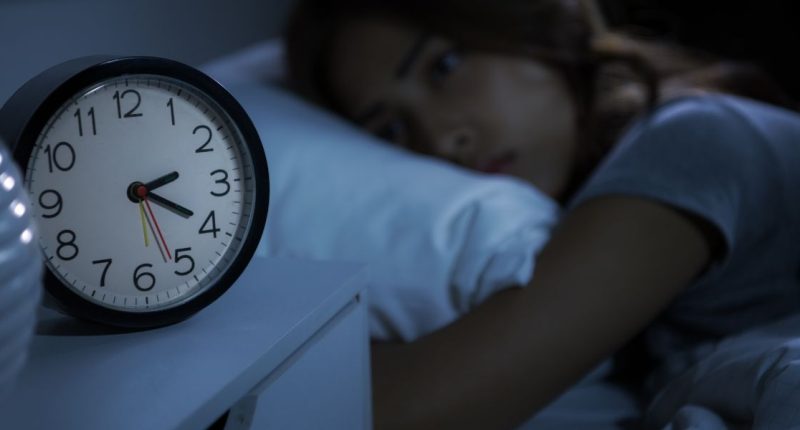A study which looked at whether adequate sleep can help prevent osteoporosis has revealed that disturbed sleep can be linked to detrimental changes in bone turnover.
While osteoporosis can be the result of many things, such as hormonal changes, aging and lifestyle factors, for some people with the condition, there is no explanation.
Study lead Christine Swanson, an associate professor in the Division of Endocrinology, Metabolism, and Diabetes at University of Colorado Department of Medicine, explained: “It’s important to look for novel risk factors and consider what else changes across the lifespan like bone does – sleep is one of those.”
- Be more active in the day to enjoy better sleep
- Vegan diet associated with reduced risk of sleep apnoea
- Mediterranean diet can help improve sleep quality
Bone mineral density peaks when people are in their early to mid-20s and remains stable for around 20 years. At that point, women going through the menopausal transition begin to experience quicker bone loss, with men also seeing a similar loss of bone density as they age.
Sleep also changes over time. The amount of sleep people get tends to reduce as they get older and the make-up of their sleep also shifts. For example, it normally takes people longer to fall asleep as they get older, while deep restorative sleep declines with age.
In addition, circadian rhythms, which influence when people go to sleep and wake up, change across a person’s lifespan.
Associate Professor Swanson explained that genes which control a person’s internal clock are present in bone cells.
She said: “When these cells resorb and form bone, they release certain substances into the blood that let us estimate how much bone turnover is going on at a given time.”
These markers of bone resorption, which is the process of breaking down bones, and formation occur as a daily rhythm, with Associate Professor Swanson explaining: “This rhythmicity is likely important for normal bone metabolism and suggests that sleep and circadian disturbance could directly affect bone health.”
Her research involved a group of participants who spent time in a controlled inpatient environment so the team could examine the effect of sleep restriction and circadian disruption on the markers of bone turnover.
The group were not aware of what time it was and moved to a 28-hour schedule rather than 24 hours. It was designed to simulate the stresses endured during rotating night shift work and was roughly equivalent to flying four time zones west every day for three weeks. Participants also got less sleep.
- Disrupted sleep during midlife associated with cognitive decline
- Losing just an hour of sleep can make you miserable
- Cutting sleep by just 90 minutes may increase type 2 diabetes risk in women
A key finding was that significant detrimental changes in bone turnover were seen in both men and women as a result of the sleep and circadian disruption. These changes were significantly greater in younger people in both sexes compared to the older participants.
If someone is resorbing bone at a greater rate than bone is being formed, it could lead to bone loss, osteoporosis, and increased fracture risk, the researchers said.
Associate Professor Swanson added: “Sex and age may play an important role, with younger women potentially being the most susceptible to the detrimental impact of poor sleep on bone health.”





